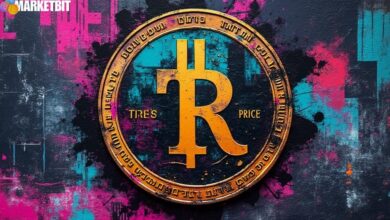Coinbase Expands Operations in Europe Amidst US Backlash

- Coinbase pursues a Luxembourg license to align with MiCA.
- 20 new hires in Luxembourg expected by year’s end.
- Expansion highlights commitment to regulated growth in the EU.
Coinbase is expanding its operations in Europe by seeking a license in Luxembourg under the EU Markets in Crypto-Assets (MiCA) framework, responding to regulatory challenges in the US.
Coinbase’s strategic move into the European market under MiCA highlights the growing institutionalization of the crypto industry, with significant regulatory and market consequences anticipated.
Coinbase is taking strategic steps to establish a stronger foothold in Europe through the secured license in Luxembourg, positioning the region as a key operational hub. This expansion is part of a broader strategy to comply with the recently implemented MiCA regulations, which offer a unified framework for digital assets across EU nations.
With Brian Armstrong steering Coinbase, the company emphasizes regulatory compliance and innovation-friendly policies in its European expansion. By focusing on Luxembourg, described as a “high-bar, well-respected global financial center,” Coinbase aims to foster a stable and compliant market presence.
“BTC and ETH exhibit risk profiles similar to traditional asset classes. Capital requirements should reflect actual risk, not outdated perceptions, ensuring that regulatory frameworks support responsible innovation without unnecessarily restricting market participation.” — Brian Armstrong, CEO, Coinbase
The licensing initiative in Europe comes amidst heightened regulatory scrutiny in the US, prompting Coinbase to bolster its European staffing, with plans to increase its workforce by 20 employees in Luxembourg. The move demonstrates a commitment to expanding its operational and regulatory landscape in the EU.
Coinbase’s endorsement of BTC and ETH in its public policy documents underlines the importance of aligning their risk profiles with traditional assets. With the MiCA framework affecting all crypto-assets, including stablecoins and tokens, the regulatory environment is set to encourage wider institutional participation.
The European regulatory landscape is poised for substantial changes, with MiCA expected to tap into a potentially $16 trillion tokenized asset market by 2030. This regulatory shift not only aligns digital assets with traditional finance but also boosts their credibility by ensuring responsible innovation and market integration.




